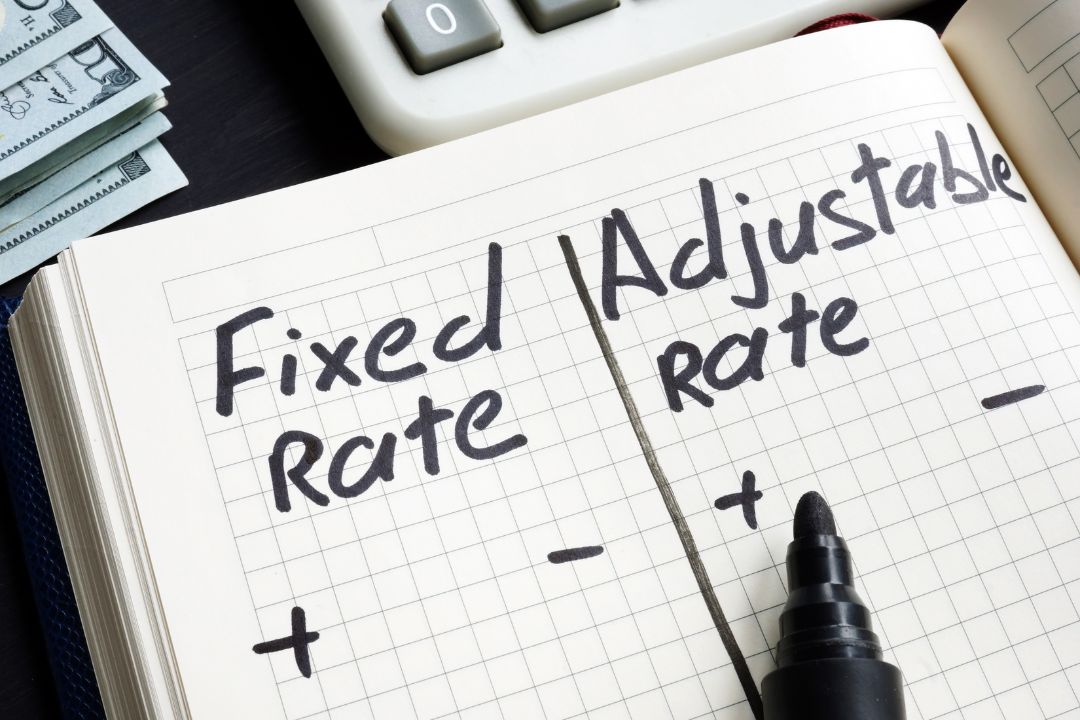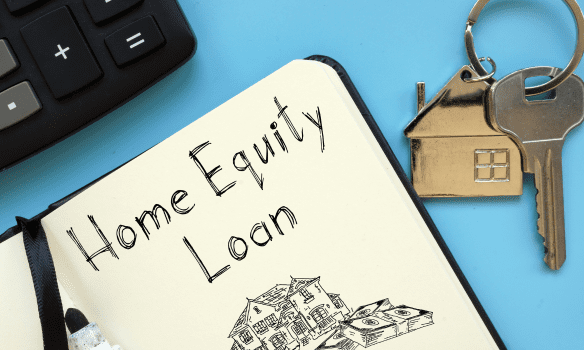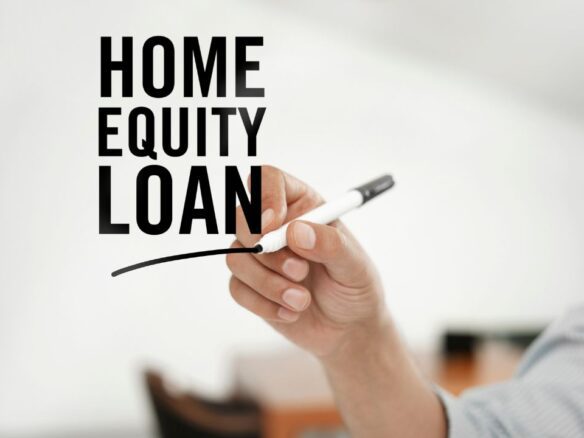Are you wanting to refinance your current mortgage or purchase a new home? If so, you might be debating between a fixed-rate and an adjustable-rate mortgage (ARM). Each has advantages and disadvantages, and in this post, we’ll examine them in-depth to provide you with the information you need to choose.
Table of Contents
- Understanding Fixed-Rate Mortgages
What is a fixed-rate mortgage? - How does it work?
- What are the pros of a fixed-rate mortgage?
- What are the cons of a fixed-rate mortgage?
- Understanding Adjustable-Rate Mortgages
- What is an adjustable-rate mortgage?
- How does it work?
- What are the pros of an adjustable-rate mortgage?
- What are the cons of an adjustable-rate mortgage?
- Comparison of Fixed-Rate and Adjustable-Rate Mortgages
- How do they differ?
- Which is better for you?
- Factors to Consider When Choosing Between Fixed-Rate and Adjustable-Rate Mortgages
- Interest rates
- Monthly payments
- Loan term
- Future plans
- Risk tolerance
- Loan amount
- Conclusion
FAQs
Understanding Fixed-Rate Mortgages
What is a fixed-rate mortgage?
An interest rate on a house loan that has a set rate and stays the same for the duration of the loan is known as a fixed-rate mortgage. Your monthly payments will therefore be fixed and predictable.
How does it work?
The lender decides the interest rate on a fixed-rate mortgage taking into account the state of the economy, your credit report, and other factors. Over the duration of the loan, which is often 15 or 30 years, this rate does not change. Each month, principal and interest are paid, and the principal amount goes down over time.
What are the pros of a fixed-rate mortgage?
The predictability that a fixed-rate mortgage provides is its main benefit. Knowing exactly what your monthly payment will be for the duration of the loan will make it easier for you to plan and budget.Also, first-time homebuyers frequently choose fixed-rate mortgages since they are generally simpler to comprehend than other mortgage types.
What are the cons of a fixed-rate mortgage?
A fixed-rate mortgage’s main drawback is that its interest rate is often higher than an ARM’s. Your monthly payments will be greater as a result, which will make it harder for you to be approved for a loan. Also, until you refinance, you will be stuck paying the higher rate even if interest rates decline in the future.
Understanding Adjustable-Rate Mortgages
What is an adjustable-rate mortgage?
A house loan with an adjustable rate mortgage (ARM) has an interest rate that changes over time. This implies that, depending on the state of the market, your monthly payments may increase or decrease.
How does it work?
A lower starting interest rate than that of a fixed-rate mortgage is typically set by the lender when you take out an ARM. This rate is in force for a specific amount of time, usually 3, 5, 7, or the first 10 years. Following that, the interest rate is adjusted annually based on the state of the market, typically with a limit on how much the rate can rise or fall each year.
What are the pros of an adjustable-rate mortgage?
The main benefit of an ARM is that its first interest rate is usually lower than that of a fixed-rate mortgage. Because of the reduced monthly payments, it will be easier for you to qualify for a loan. Your monthly payments will also decrease if interest rates decline.
What are the cons of an adjustable-rate mortgage?
The unpredictability an ARM delivers is its biggest drawback. Your monthly payments may change over time, which makes budgeting and planning more challenging. Also, your monthly payments could considerably increase if interest rates rise, making it more difficult to get by. Finally, ARMs can be trickier to understand than fixed-rate mortgages due to their more complex terms and conditions.
Comparison of Fixed-Rate and Adjustable-Rate Mortgages
How do they differ?
Having a fixed interest rate for the whole length of a loan gives you certainty and stability. On the other hand, ARMs come with more risk and uncertainty but provide lower initial interest rates and the opportunity for future lower payments.
Which is better for you?
The answer to this query is based on the particulars of your situation and your objectives. A fixed-rate mortgage can be a better choice if stability and predictability are more important to you. An ARM might be a better option if you don’t mind risk and ambiguity and if future interest rates are predicted to stay low or fall.
Factors to Consider When Choosing Between Fixed-Rate and Adjustable-Rate Mortgages
Interest rates
Which kind of mortgage is best for you depends in large part on interest rates. A fixed-rate mortgage might be a better choice if interest rates are high since you can lock in a lower rate. An ARM might be a better choice if interest rates are low because you can benefit from lower introductory rates.
Monthly payments
Another crucial consideration when deciding between fixed-rate and adjustable-rate mortgages is the monthly payment. Fixed-rate mortgages provide predictability because there is a set monthly payment due. On the other side, ARMs have a tendency to change over time, which makes planning and setting a budget more difficult.
Loan term
The amount of time during which you will pay back the mortgage is referred to as the loan term. While ARMs can be given over shorter terms, such as 3 or 5 years, fixed-rate mortgages are commonly issued for 15 or 30-year terms. It’s crucial to carefully analyze the loan duration because it can have an impact on the interest rate and size of the monthly payments.
Future plans
Whether you choose a fixed-rate or an adjustable-rate mortgage may also depend on what you plan to do in the future, such as retire, move, or switch jobs. A fixed-rate mortgage can be a better choice if you want to live in your house for an extended period of time. An ARM can be a better choice if you want to relocate or refinance in the next few years.
Risk tolerance
A key factor in deciding between fixed-rate and adjustable-rate mortgages is your risk tolerance. A fixed-rate mortgage can be a better choice if you want stability and are risk-averse. An ARM might be a better choice if you don’t mind taking risks and being uncertain.
Loan amount
Which type of mortgage is best for you will depend in part on the loan amount. For bigger loan amounts, fixed-rate mortgages are frequently available, although ARMs might be a better choice for lesser loan amounts.
Conclusion
In conclusion, you should carefully analyze your unique financial position and aspirations before deciding between a fixed-rate mortgage and an adjustable-rate mortgage. Fixed-rate loans provide stability and predictability, but they may also have greater upfront expenses and less flexibility. On the other hand, adjustable-rate mortgages come with the danger of having larger monthly payments if interest rates rise while simultaneously having lower starting fees and more flexibility. The choice ultimately boils down to your preferences and financial objectives.
FAQs
Which type of mortgage is better, fixed or adjustable?
Whether you choose a fixed-rate or an adjustable-rate mortgage will depend on your finances, goals, and willingness to take risks. A fixed-rate mortgage can be a better option if you value stability and predictability. An adjustable-rate mortgage might be a better choice if you think interest rates will decline in the future or if you want to sell your house before the original fixed-rate period is over.
With an adjustable-rate mortgage, how frequently does the interest rate change?
The interest rate on an adjustable-rate mortgage usually changes once a year, but the terms of your loan may allow for changes to happen more or less often.
Can I change my mortgage from an adjustable rate to a fixed rate?
Your adjustable-rate mortgage can be converted into a fixed-rate mortgage at any time; thus, the answer is yes. You will nevertheless need to meet the requirements for the new loan and cover the refinancing’s closing charges.







Join The Discussion